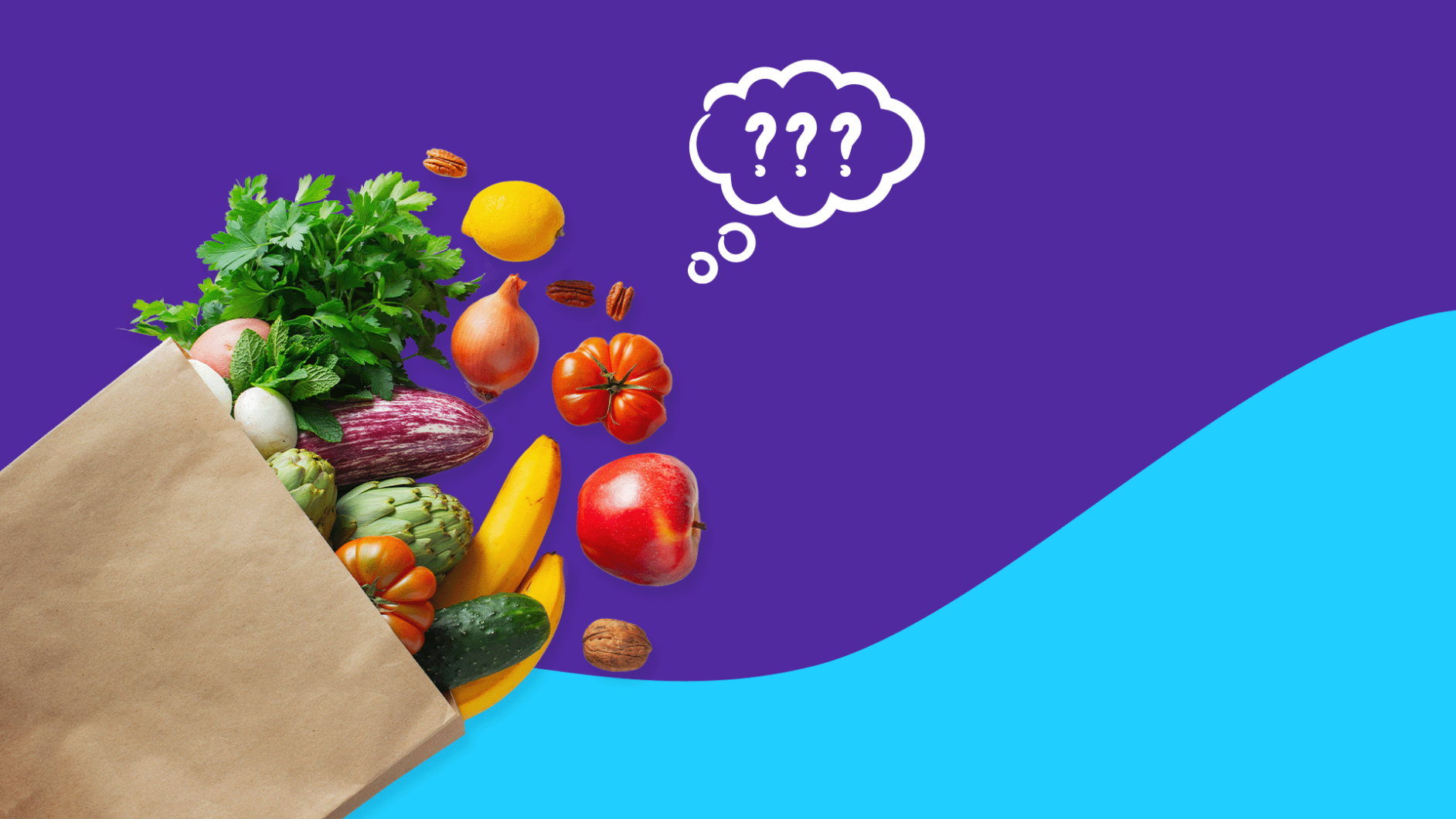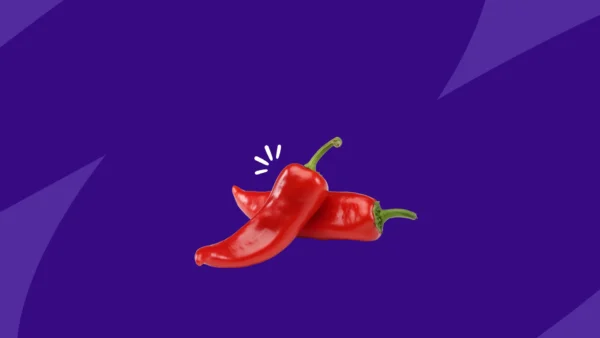Belly bloat has many causes, including excess gas, fluid retention, constipation, menstruation, food intolerances, small intestinal bacterial overgrowth, and irritable bowel syndrome. But whatever the cause, you may be able to prevent bloating by tweaking your diet. We’ve consulted the experts to recommend 10 foods that help with bloating and eight foods to avoid for bloating.
The connection between diet and bloating
“Bloating is [often experienced as] stomach discomfort that may include distention, gas, cramps, [and accompanied by] constipation, or diarrhea. It usually is more severe after eating and less severe before eating,” says Kimberly Gomer, a registered dietitian and licensed dietitian nutritionist in private practice in Miami, Florida.
Bloating is often your body reacting to your diet. Gomers says the most common causes of bloating discomfort include dairy, gluten, lactose intolerance, or other sensitivity to specific foods. She also says chronic constipation caused by food additives, especially those found in highly processed foods, may be to blame. “Some people experience bloating after eating high-fiber foods, a big meal, or a meal that is fat-heavy or spicy. Additionally, a change in diet may cause temporary digestive issues such as bloating.”
Best foods for bloating
While some foods cause bloating due to their increased potential to cause constipation, gas, or water retention, others may actually do the opposite.
1. Bananas
Bananas are perfect because they are convenient to eat on the go and make great additions to smoothies and yogurt. They’re packed with nutrients such as potassium, which regulates sodium, therefore reducing the risk of water retention. They can also ease the strain of digestion, which “is a big player in bloating issues,” Gomer says. Research published in the journal Anaerobe on the effect of banana consumption on the gut found that women who ate one medium banana twice a day experienced less bloating than those who didn’t consume bananas.
2. Pineapples
Pineapples are sweet fruits with an impressive nutrient profile. They contain a mixture of enzymes called bromelain that are used to treat indigestion and inflammation. Pineapples can be eaten on their own or added to smoothies, salsas, pancakes, salads, tacos, and a variety of other recipes.
3. Avocados
Avocados are stomach-friendly sources of fiber and potassium, nutrients known to promote healthy digestive function, according to Johns Hopkins Medicine. They contain small amounts of fructose, making them less likely to cause gas than high-fructose fruits. However, they should be consumed in moderation because of the high fat content.
4. Papaya
If you are looking for natural remedies for bloating, papaya should be top of mind. The fruit contains an enzyme called papain that aids in protein digestion. It also has fiber, which helps keep bowel movements regular. In some countries, papaya is used as a home remedy for digestive issues. A study published in 2013 found that people with chronic indigestion who took a product made of concentrated papaya pulp for 40 days saw improvement in gastrointestinal symptoms such as constipation and bloating.
5. Green tea
Green tea may help with bloating due to its anti-inflammatory properties, Gomer says. “The polyphenols and flavonoids such as catechins, catechin gallates, and proanthocyanidins are responsible for stimulating the growth of beneficial bacteria in the gut and hindering the growth of the less beneficial type.”
6. Ginger
Ginger is not just great for adding flavor to your foods; it can also be a home remedy for bloating. Gingerol, a compound found in ginger, is known to improve the movement of food through the gastrointestinal tract and out of the body, thus relieving constipation, which is a contributor to bloating. In general, ginger helps to manage fermentation, constipation, and other causes of bloating.
Additionally, because of its anti-inflammatory properties, ginger helps relax the intestinal tract so it’s easier for food to pass, according to Kim Shapira, a registered dietician and coach at Trimly. Ginger also has stimulating properties. “When we eat ginger, we produce digestive enzymes that help break down and move food throughout the digestive system. Consuming ginger through ginger tea or supplements or adding fresh ginger to meals can help prevent or manage bloating by promoting smoother digestion and reducing gas,” Shapira says.
7. Fennel
Fennel has many health benefits, and it has been used in traditional herbal medicine around the world. “Fennel contains compounds that help relax the muscles in your digestive tract. This helps reduce gas and bloating. Fennel is also a good source of fiber, which helps alleviate constipation, another factor that contributes to bloating,” Shapira says. It is also considered a natural diuretic and can reduce water retention.
8. Cucumber
Cucumber is a low-FODMAP food, which means it is low in fermentable oligosaccharides, disaccharides, monosaccharides, and polyols. FODMAPS are carbohydrates that are digested poorly in the intestine. They have been linked to GI symptoms like gas, bloating, abdominal pain, and constipation, while low-FODMAP foods have been associated with relieving symptoms of gastrointestinal disorders, particularly abdominal bloating. Another thing to consider is that cucumbers are 96% water. Adequate hydration is important for healthy stool and preventing constipation.
9. Lemon juice
Lemon juice can reduce bloating due to its high citric acid content, Gomer says. “Citric acid can increase the production of digestive juices and enzymes, making it easier for the body to break down food and absorb nutrients.” Gomer adds, “Easing digestion is a key to reducing bloating.”
10. Probiotic foods
Probiotics are live microorganisms that help break down food correctly, restoring the digestive system and thereby improving overall health. A recent review published in the journal Clinical Gastroenterology and Hepatology suggests that probiotics may reduce bloating by modifying the gut microbiome. Another recent study published in the journal Neurogastroenterology & Motility suggests that probiotics can relieve bloating by reducing gas production. Yogurt, kefir, and sauerkraut are just a few probiotic foods rich in bacteria that are good for the gut.
Foods that cause bloating
Steer clear of the following foods if you’re trying to curb bloating, or at least consume them in moderation.
1. Fructose-rich fruit
Some of the sweetest fruits are also high in fructose, which is poorly absorbed by the small intestine. When it is passed into the colon, bacteria break it down to produce gas, which contributes to boating, especially if your body isn’t accustomed to eating a certain type of fruit. This doesn’t mean you should avoid it entirely, but you may want to introduce new fruits in moderation. Instead of high-fructose fruits like apples, watermelon, and pears, opt for bananas, pineapple, citrus fruits, and berries.
2. Cruciferous vegetables
According to Mayo Clinic, cruciferous vegetables such as broccoli, cauliflower, brussels sprouts, and cabbage can contribute to bloating because they contain complex fibers that are poorly digested. To prevent bloating, choose dark leafy greens like kale, spinach, and Swiss chard instead since they’re also nutrient-dense but easier to digest.
3. Legumes
Although considered superfoods because they are rich in protein, fiber, minerals, and vitamins, legumes also contribute to bloating. Legumes such as beans and lentils are high-FODMAP foods containing complex carbohydrates known as oligosaccharides, which are difficult to digest. This makes them a big contributor to GI symptoms such as gas and bloating.
4. Barley, wheat, and rye
These whole grains, barley, wheat, and rye, contain a protein known as gluten. Gluten is only partially broken down by digestive enzymes and contributes to intestinal inflammation and gastrointestinal diseases in certain people, especially those with celiac disease. People who are sensitive to gluten often complain of bloating after eating gluten-containing foods. Gluten-free alternatives include grains such as quinoa and sorghum.
5. Processed foods
“Processed food or fast food—full of sugar, processed starches, chemicals, additives, and seed oils—is a huge factor for many [people with] bloating,” Gomer says. She explains that when her clients remove processed foods from their diets and replace them with whole, unprocessed foods, one of the first things they notice is better digestion and less bloating.
6. Processed seed oils
Processed seed oils can cause bloating in many people. “Avoid processed vegetable seed oils as much as possible. These industrial oils raise our omega-6 to omega-3 fatty acid ratios, which can harm the heart and the gut,” Gomer says. She recommends looking at the ingredient lists on food packaging to avoid products containing soybean oil, corn oil, canola oil, cottonseed oil, grapeseed oil, rice bran oil, and sunflower oil.
7. Carbonated beverages
Carbonated drinks can cause bloating and should be taken in moderation or eliminated completely from your diet if bloating is an issue. Carbonated drinks contain carbon dioxide gas bubbles that can build up in your stomach and lead to bloating. Some carbonated drinks also have artificial sweeteners like sorbitol or aspartame, which are hard to digest and can lead to gas production and bloating,” Shapira says.
8. Dairy
If you are lactose intolerant, you will need to limit foods and beverages that contain lactose—such as milk or milk products. “Many people have a hard time digesting lactose, the milk sugar found in dairy products, because they have low levels of the enzyme lactase, which is needed to break it down. Taking a lactase enzyme can help with this,” Shapira says. Some dairy products are also high in fat, which also leads to bloating.
Other ways to treat bloating
Apart from eating foods to help your digestion and limiting foods that contribute to bloating, you can follow these steps to treat bloating:
- Stay hydrated. Make sure you drink plenty of water daily, particularly before and after eating, as water is very important for optimal digestion.
- Exercise regularly. Studies have shown that regular physical activity can improve bowel movement, incomplete defecation, and hard stools in people with chronic constipation. Try taking a short walk after your meal to aid digestion and prevent belly bloat.
- Eat smaller, more frequent meals. This is particularly important if you experience bloating after eating large meals.
- Keep a food diary. This will help you take note of the foods that cause bloating, and you can work with your dietitian to remove and replace them in your diet.
You can also take some over-the-counter (OTC) medicines for relieving gas, such as Pepto-Bismol (bismuth subsalicylate), activated charcoal, lactase enzyme, and simethicone. OTC laxatives such as Dulcolax (bisacodyl), Senokot (sennosides), and Surfak (docusate calcium) can relieve constipation but should be used for a short time. Fiber products such as Benefiber, Citrucel, and Metamucil can also improve bowel habits but may temporarily increase gas as the body gets used to the increased fiber in the diet.
When to see a doctor for bloating
See your doctor for chronic bloating lasting for more than three weeks. You should also contact your healthcare provider if bloating presents with symptoms such as diarrhea, constipation, weight loss, bloody stool, and a lump in your stomach.
Sources
- Effect of banana consumption on fecal microbiota: a randomized, controlled trial, Anaerobe (2011)
- Bromelain, Mount Sinai
- 5 foods to improve digestion, John Hopkins Medicine
- Papaya preparation (Caricol®) in digestive disorders, Neuro Endocrinology Letters (2013)
- Ginger benefits, John Hopkins Medicine
- Diet and nutrients in gastrointestinal chronic diseases, Nutrients (2020)
- Management of chronic abdominal distension and bloating, Clinical Gastroenterology and Hepatology (2021)
- Management of bloating, Neurogastroenterology & Motility (2022)
- Mayo Clinic Q and A: Food to reduce bloating, Mayo Clinic (2023)
- Physical activity for treatment of irritable bowel syndrome, Cochrane Database of Systematic Reviews (2022)











